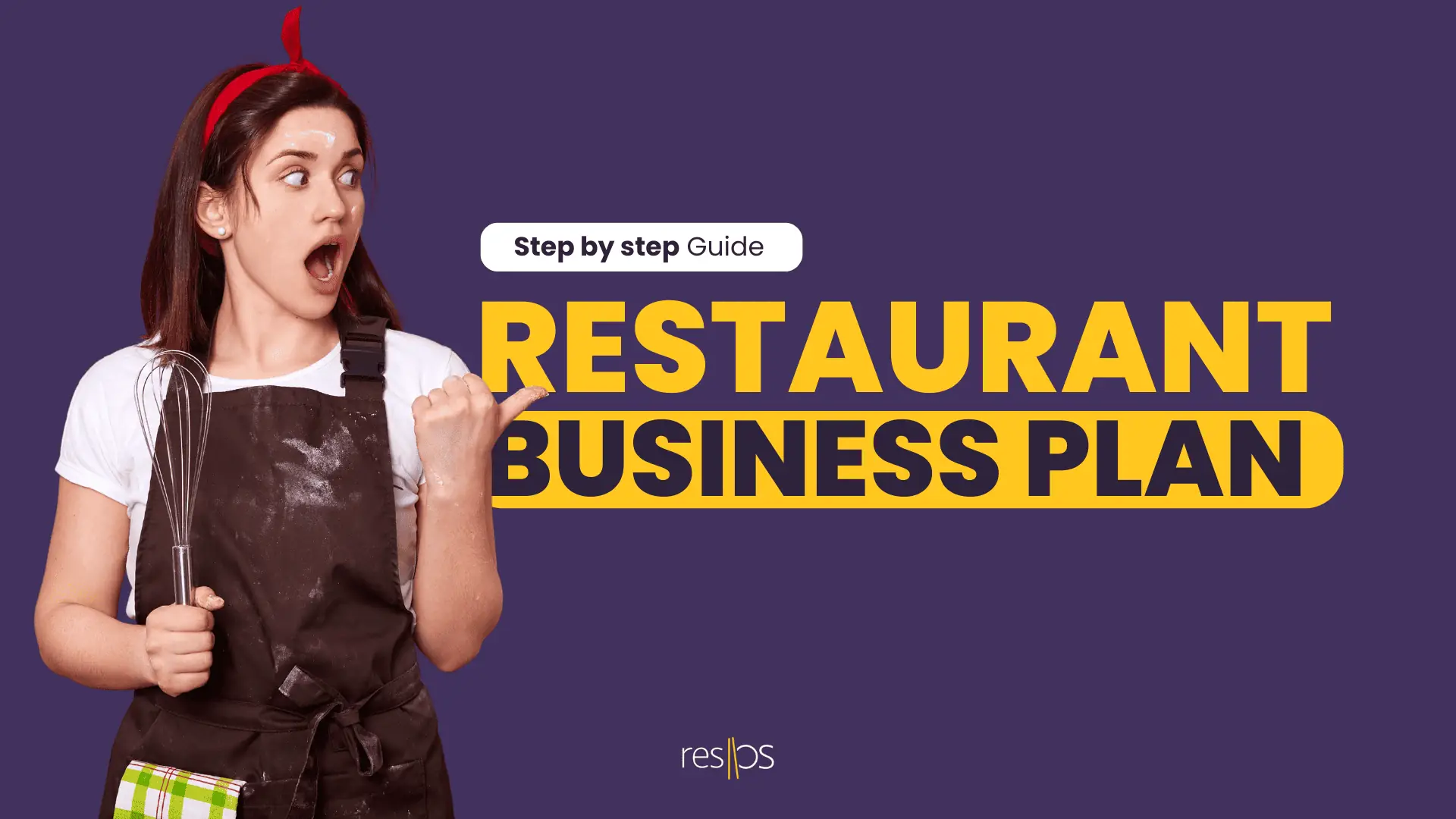Starting a restaurant is an exciting but challenging journey. Whether you’re opening a small café or a large dining establishment, a restaurant business plan is essential.
It will help you organise your ideas, secure funding, and guide your business decisions. In this article, we’ll explain step-by-step how to write a detailed business plan, provide practical tools, and share real-life examples tailored to small restaurant owners.
What is a Restaurant Business Plan?
A restaurant business plan is a document that outlines your restaurant’s goals, services, financial forecasts, and marketing strategies. It helps you stay organised, win over investors, and avoid costly mistakes by preparing for challenges.
Why Do You Need a Restaurant Business Plan?
To Attract Investors
If you’re looking for funding, investors will expect a clear plan that proves you’ve done your homework.
For example, a local café owner in London secured funding by presenting detailed cost projections and plans for introducing sustainable packaging.
According to Investopedia, businesses with structured business plans are 30% more likely to achieve growth and secure funding. This highlights the importance of having a clear strategy and accurate financial forecasting to gain access to loans, grants, and investment opportunities.
To Set Goals and Stay Focused
A business plan helps you set realistic goals, such as serving 100 customers per day within the first three months or adding a catering business plan for events. By setting goals, you’ll know where to allocate resources and how to measure success.
To Avoid Risks
Restaurants often fail because of poor planning. If you plan ahead for staffing, supplies, and unexpected costs, you can avoid running out of money during tough times. A report from MarketMan reveals that 60% of restaurants close within their first year due to underestimating costs.
According to data from the UK’s Restaurant Management sector, approximately 20-25% of restaurants close within their first year. Common reasons for failure include underestimating startup costs, poor cash flow management, and lack of a detailed business plan.
To Manage Your Finances
A plan helps you figure out how much money you need to start, what your running costs will be, and when you might break even. Tools widely used in the UK, such as QuickBooks, Xero, and LivePlan, can assist with financial planning:
- QuickBooks: A popular tool in the UK for small businesses, QuickBooks helps manage expenses, track income, and generate tax-ready financial reports. It’s especially useful for restaurant owners needing real-time cash flow insights.
- Xero: Another highly rated tool in the UK, Xero is known for its seamless integration with bank accounts and its invoicing features. It’s perfect for restaurants wanting detailed financial visibility and easy collaboration with accountants.
- LivePlan: This software simplifies business plan creation and financial forecasting. UK users appreciate its templates tailored to hospitality and its ability to project long-term growth scenarios.
Step-by-Step Guide to Writing a Restaurant Business Plan
1. Executive Summary
The executive summary introduces your restaurant idea and business goals. Although it’s the first section, write it last to capture all key points.
Your Restaurant’s Concept
Example: The Green Table is a family-friendly vegetarian café that focuses on locally sourced, organic meals in a relaxed setting.
Use tools widely used in the UK, such as Business Name Generator or Oberlo, to generate creative and professional names that align with your theme.
Business Name Generator offers suggestions tailored to industries like restaurants, while Oberlo provides unique names inspired by popular trends and keywords.
These tools are excellent starting points for brainstorming memorable names that reflect your restaurant’s identity.
Mission and Vision
Your mission explains what your restaurant aims to achieve, such as: “To provide high-quality, affordable meals made from sustainable ingredients.” Your vision is long-term.
Example of the vision statement
To become the top-rated eco-friendly restaurant in Brighton within two years.
Financial Overview
Summarise your estimated startup costs, potential income, and funding needs. The average startup cost for a UK restaurant ranges between £50,000 and £100,000. This includes essential expenses such as:
- Renovations: £15,000-£25,000
- Kitchen equipment: £12,000-£18,000
- Initial stock: £5,000-£8,000
- Licences and permits: £2,000-£5,000
For example, a small restaurant in Manchester may budget approximately £60,000 for setup, including a £10,000 contingency fund for unforeseen expenses.
2. Company Description
Explain the core details of your restaurant.
Type of Business
What type of restaurant are you starting?
Examples include:
- A small café with takeaway options
- A fine-dining restaurant specialising in British cuisine
- A catering business plan offering delivery for office events
Location and Target Audience
Describe where your restaurant will be and why it’s ideal:
Example: A coffee shop in Manchester’s city centre with heavy foot traffic and nearby offices.
Include demographics, like the average customer’s age, income, and preferences.
What Makes You Unique
Focus on what sets you apart. For instance:
- Offering gluten-free and vegan options
- A child-friendly play area for families
- Fast service for workers on lunch breaks
Example: The Barge Inn, a countryside pub, became successful by combining traditional British meals with a modern outdoor dining experience.
👉 Read more about current food trends here
3. Market Analysis
Market research shows there’s demand for your restaurant and helps you understand competitors.
Industry Trends
Research trends relevant to your restaurant. Examples include:
- Growing demand for plant-based menus
- Increased use of online reservation systems like resOS
Data from the Food Standards Agency highlights that 70% of UK diners now consider sustainability when choosing where to eat.
Your Target Market
Describe your ideal customer:
- Families looking for affordable meals
- Young professionals who prefer fast, quality dining
Competitor Analysis
Study competitors in your area:
- What dishes are on their menu?
- What prices do they charge?
- How do they attract customers?
Example: A small pizza restaurant in Liverpool found success by offering affordable lunch specials, competing effectively with chain pizzerias nearby.
4. Menu and Services
The menu is one of the most important parts of your plan.
Sample Menu
Create a simple menu with clear pricing. For example:
- Starters: Tomato soup (£3.50)
- Mains: Classic fish and chips (£9.50)
- Desserts: Chocolate brownie with ice cream (£4.00)
Use tools like Canva to design a professional-looking sample menu.
Special Services
If offering additional services, such as catering, delivery, or private events, explain how they will benefit your business. For example:
- “We will partner with Deliveroo to offer food delivery to customers in our area.”
- “Our catering menu will include options for corporate offices, priced at £10 per head for small groups.”
Conclusion
Writing a restaurant business plan doesn’t need to be complicated. By following this guide, incorporating real-life examples, and using reservation systems like resOS and AI-powered solutions, you can create a clear, realistic plan to set up your restaurant for success.
Whether you’re opening a small café, starting a catering business, or launching a family restaurant, a strong business plan will help you achieve your goals and avoid costly mistakes.
Ready to turn your idea into reality? Start planning today and take the first step towards running a successful restaurant!



